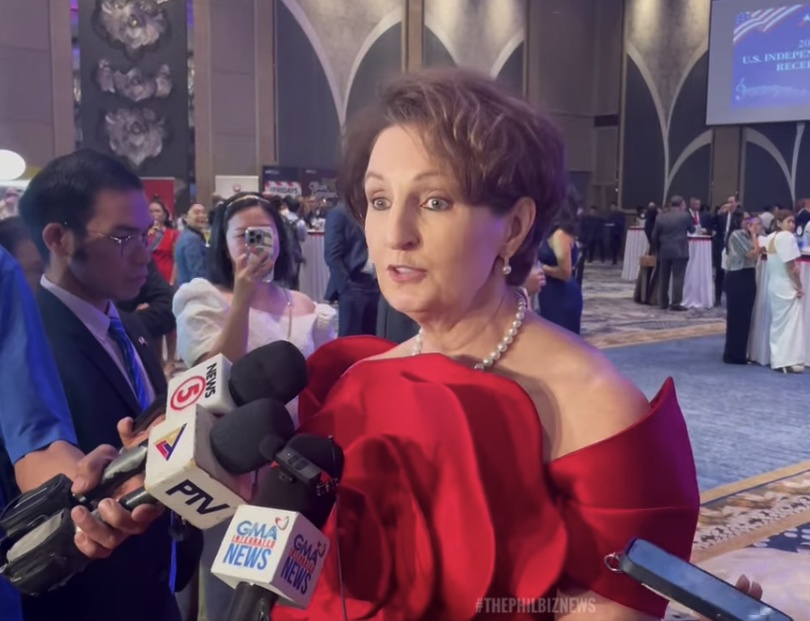Good morning and welcome to the U.S. Embassy’s Election Watch event. Thank you for joining us as we celebrate one of the foundational elements of democracy – election day. One person, one vote – a simple concept with profound consequences. We, as U.S. citizens get to choose our leaders. Here in the Philippines, Filipino citizens also cherish the right to cast their ballots and make their voices heard. Not all people around the world enjoy this basic right.
As friends, partners, and allies, we hold each other accountable to live up to our highest democratic ideals, including – maybe especially – during elections. Our systems of government, though far from perfect, strive to enshrine the rule of law and protect the equality and dignity of all people – one person, one vote at a time. As Abraham Lincoln said, “Democracy is the government of the people, by the people, for the people.”
When political parties compete freely on a level playing field; when voters’ rights are respected; and when election outcomes are upheld with the peaceful transition of power, societies are more prosperous and secure. And if governments fall short, voters can vote the other way the next time. That’s the power of democratic elections. Citizens know they have a stake in the outcome, and that they will be able to make their opinions known in the next ballot – thereby holding candidates accountable. That’s how we, as citizens in a democracy, shape government policies. Voting is a privilege, but it also comes with obligations. Which brings me to another less-well-known quote by Abraham Lincoln who said, “Elections belong to the people. It’s their decision. If they decide to turn their back on the fire and burn their behinds, then they will just have to sit on their blisters.”
In the U.S. federal system, the voting rules are set and regulated by each state. The process can often feel messy and uncomfortable – and even a bit confusing. Those of you who have had a chance to visit some of our information booths here may have learned some things about U.S. elections you didn’t know – I know I learn something every election season!
In the U.S. system, the administration of elections is highly decentralized. Elections are administered by thousands of state and local officials, not by a single, monolithic national entity. Although states – and even counties within those states – each have their own systems for casting and counting ballots, they all have extensive checks and balances in place to ensure that votes are counted as cast. We can be assured that in each voting locality, there are dedicated election officials and civic volunteers working hard to uphold the sanctity of the secret ballot.
The U.S. presidential election at the national level is certainly the most high-profile of the elections taking place across America today, but there are hundreds of others occurring at the state and local level. In addition to casting their ballot for president, American voters are also selecting U.S. House and Senate representatives, governors, state legislatures, municipal leaders, judges, and more. Those local decisions can be just as impactful for individuals in each community as the presidential election.
Here in Manila, the U.S. Embassy has been helping U.S. citizens participate in the 2024 election – just as we do at all U.S. embassies and consulates around the world. Through the Federal Voting Assistance program, we have been providing U.S. citizens living in the Philippines with information they need to cast their ballots for national, state, and local elections – depending on their U.S. state of residence. Some states allow the ballots to be returned by fax or email; others require completed ballots to be sent by mail – and in those cases, we have been accepting voted ballots at the U.S. Embassy and our Veterans Affairs office to be sent to state election officials.
The election and the democratic process do not end on election day. As the playwright Tom Stoppard famously said, “It’s not the voting that’s democracy; it’s the counting.” And that’s where we are now: as the polls close across the United States, the vote counting begins. Time may be required to count votes and let the electoral process work. Waiting for results is a sign that the process is working as intended, and that all votes are being counted.
Once again, thank you all for celebrating democracy with us today. If you have not yet done so, please take time to visit the Education Stations on the U.S. Electoral College, Voting Rights, Political Parties, and Federalism. Our volunteers welcome your questions and views. Please also take the opportunity to cast your own vote, stand on the debate stage, and take photos with the candidates. Enjoy the event!
Thank you.














